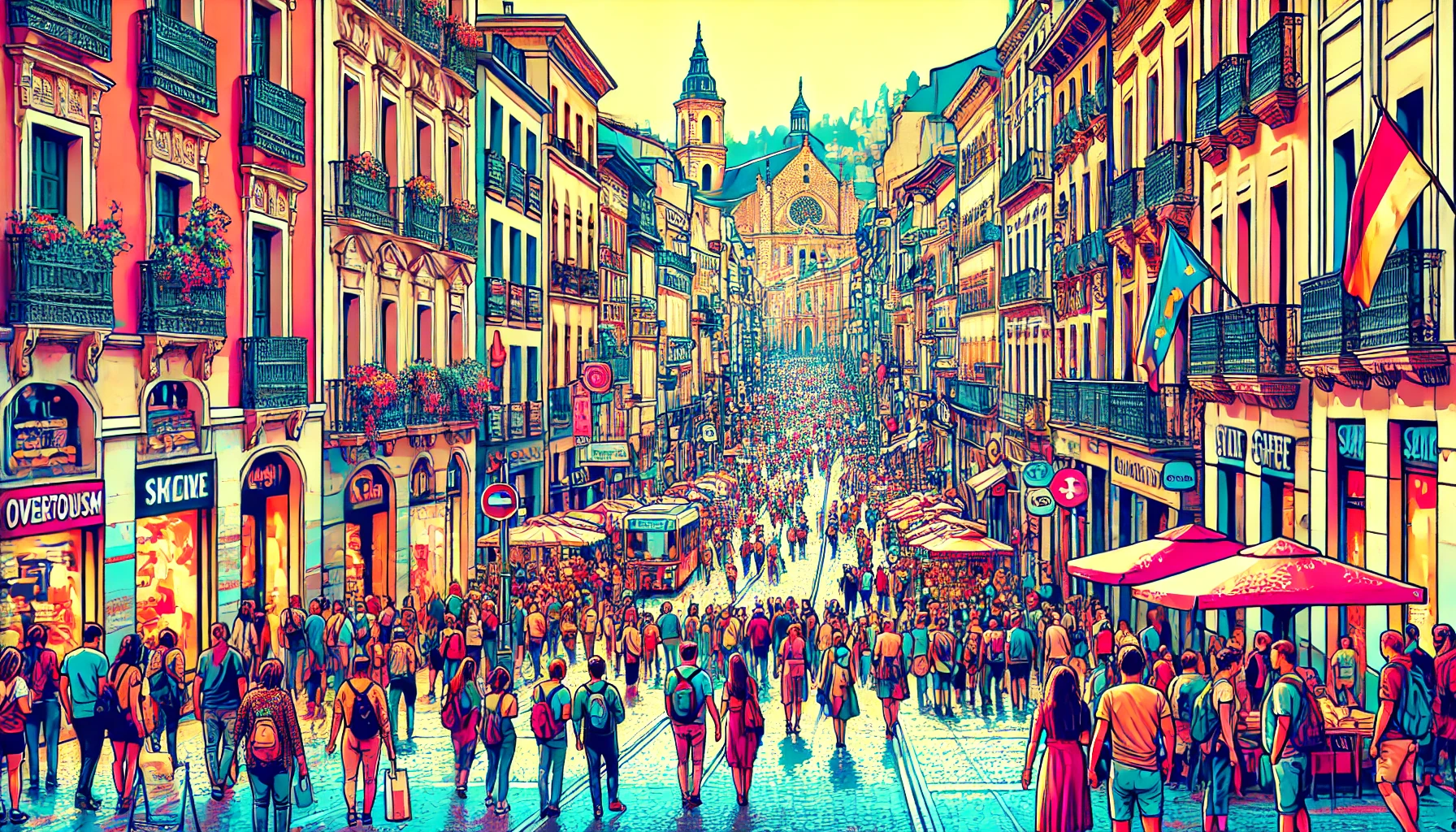Tourism is a double-edged sword—bringing economic benefits while creating challenges for local communities. Overtourism is a growing concern in popular European destinations, where the sheer number of visitors overwhelms the local infrastructure. This post explores why overtourism is pushing some residents to ask tourists to stay away and how budget travelers can adapt.

The Impact of Overtourism on European Cities
Overtourism is more than just an inconvenience; it’s a serious issue affecting the sustainability of popular destinations. When too many visitors flood a city, the strain on local infrastructure, resources, and residents becomes overwhelming. Historic landmarks and natural environments face accelerated wear and tear, leading to expensive maintenance and restoration efforts. For example, the ancient city of Venice is sinking under the weight of both its historic charm and millions of annual tourists, forcing local authorities to consider extreme measures, like entry fees, to control the influx.
Real-Life Examples of Overtourism’s Effects
The economic impact is equally significant. While tourism generates income, it can also drive up living costs, making it difficult for locals to afford housing and everyday necessities. In places like Barcelona, skyrocketing rental prices have displaced residents, leading to protests and demands for stricter regulations on short-term rentals. Additionally, the rise of tourist-centric businesses often overshadows local shops, changing the character of neighborhoods and diminishing the authenticity that initially attracted visitors.
Here in Las Vegas, the protection of the resort business has led to regulations on short-term rentals like Airbnb, limiting them to stays no shorter than 30 days. These rentals are also required to collect the same taxes as hotels. This policy has helped curb out-of-state investors from snapping up apartments that locals need, keeping rental prices from skyrocketing even more. While prices are still steep for other reasons, the situation would be much worse without these regulations.
The cultural impact is perhaps the most intangible but equally damaging. Overtourism can lead to the erosion of local traditions and customs, as communities adjust to cater to tourist expectations. In extreme cases, this can result in cultural homogenization, where the unique identity of a place is lost, replaced by a generic tourist experience. As highlighted in The Guardian, cities like Venice and Barcelona are struggling with similar issues, prompting local governments to take action.
How Budget Travelers Can Travel Responsibly
As budget travelers, it’s important to remember that travel is a privilege. Before you go, learn about the local culture. When you arrive, respect that you’re a guest in someone’s home. Adopting this approach ensures we don’t add to the issues threatening these destinations.
Tips for reducing the impact of Overtourism
By adopting sustainable practices we can minimize our impact and help preserve the destinations we love. I found this great article over at Bag Lady Meredith, that go over this way better than I would. For those interested in going deeper into sustainable travel practices, the UN World Tourism Organization (UNWTO) provides a wealth of resources on how we can support sustainable development in tourism. Learn more at UNWTO Sustainable Development.
Sustainable Alternatives to Overcrowded Destinations

Thankfully, there are countless alternatives to Europe’s most crowded destinations. Whether you’re looking for similar experiences or exploring lesser-known spots, there’s always a way to travel sustainably without sacrificing enjoyment.
Why Choosing Lesser-Known Spots Can Make a Difference
Exploring off-the-beaten-path destinations can provide the same cultural and historical richness without the crowds. There’s a growing trend on socials called ‘dupes’, as in duplicates. If you’re looking for an cheaper alternative brand name products or popular destination, ‘dupes’ is what you’re searching for. Even National Geographic has picked up on it. Plus, these alternatives often offer more authentic experiences and a chance to connect with local communities, which is lost in major tourist hotspots.
Our Role in Protecting Destinations
We are guests in someone else’s home when we travel. Act as you would want your guests to act, and leave places as you would like to find them. To get the most out of travel, be mindful of the cultures, people, and nature. Travel is a luxury, and we mustn’t take it for granted.

